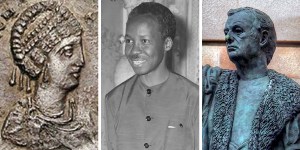Relativism breeds violence. Only truth will set us free.
After the attempted assassination of Donald Trump, what Pope Francis argues in his encyclical Fratelli Tutti is more important than ever.
It was heartening to see how people of all political stripes united after the shooting.
Political opponents and supporters of Trump alike sense that this assassination attempt is more than a random shooting. They think it means something big about America.
The Washington Post editorial board suggested that the intensity of political rhetoric needed to be curtailed. “The darkest hours of American history, the ones shadowed by political violence, remind us that incitement and hatred must be constantly challenged,” they wrote.
“The world is watching. And wondering,” wrote Michael Goodwin, the conservative commentator at the New York Post. “They see that the people in the greatest, most powerful country in history cannot stop hating each other and destroying their nation. They wonder why.”
Catholics should know why: Both Pope Francis and St. John Paul II have agreed with Pope Benedict XVI’s analysis of the West as “a dictatorship of relativism that does not recognize anything as definitive and whose ultimate goal consists solely of one’s own ego and desire.”
Pope Francis argued that violence is inevitable when we reject eternal truth.
“Truth, in fact, is an inseparable companion of justice and mercy,” Pope Francis wrote in his 2020 encyclical on brotherhood and social friendship. “Violence leads to more violence, hatred to more hatred, death to more death. We must break this cycle which seems inescapable” (No. 277).
For decades, secular voices have suggested that a “live and let live” attitude is the answer to society’s division. This is not the case, according to Pope Francis. When truth has no power, then whoever has the power determines the truth.
“The solution is not relativism. Under the guise of tolerance, relativism ultimately leaves the interpretation of moral values to those in power, to be defined as they see fit,” he writes (No. 206) “When the culture itself is corrupt, and objective truth and universally valid principles are no longer upheld, then laws can only be seen as arbitrary impositions or obstacles to be avoided.”
We can be free
On the other hand, belief in a universal truth leaves us free to disagree, vehemently.
If all truths are up for grabs, then politics becomes crucially important — because it decides whose truth prevails. But if we all agree that we owe allegiance to absolute principles, then even heated discussions are okay — because the truth will remain true no matter who wins.
As Pope Francis put it, “Together, we can seek the truth in dialogue, in relaxed conversation or in passionate debate. To do so calls for perseverance; it entails moments of silence and suffering, yet it can patiently embrace the broader experience of individuals and peoples” (No. 50).

Truth allows us to be charitable, because it helps us see each other not as ideological enemies, but as brothers and sisters in the same effort to find the truth, according to Pope Francis.
“Charity needs the light of the truth that we constantly seek,” he said. “That light is both the light of reason and the light of faith,’ and does not admit any form of relativism” (No. 185).
Francis is firmly in line with his predecessors.
At one point (No. 273) in his encyclical on brotherhood, Pope Francis makes his own a statement from St. John Paul II.
“If there is no transcendent truth,” he said, “power takes over, and each person tends to make full use of the means at his disposal in order to impose his own interests or his own opinion, with no regard for the rights of others.”
Pope Francis adds that “Relativism always brings the risk that some or other alleged truth will be imposed by the powerful” (209).
Relativism may sound like tolerance, but it really means “might makes right.”
There is no easy answer, but Catholics absolutely must act
At the National Catholic Register, I point out that, for Catholics, the important political corollary to truth is love.
Says Pope Francis, “The ability to sit down and listen to others, typical of interpersonal encounters, is paradigmatic of the welcoming attitude shown by those who transcend narcissism and accept others, caring for them and welcoming them into their lives” (No. 48).
There are many efforts to encourage civil discourse. At my own university, we are actively trying to transform culture in America, offering a new free course on America’s founding principles, and expanding education dedicated to transcendent truth.
But we each have a part to play. In order to build a civil society, each of us has to be models of love and truth.


